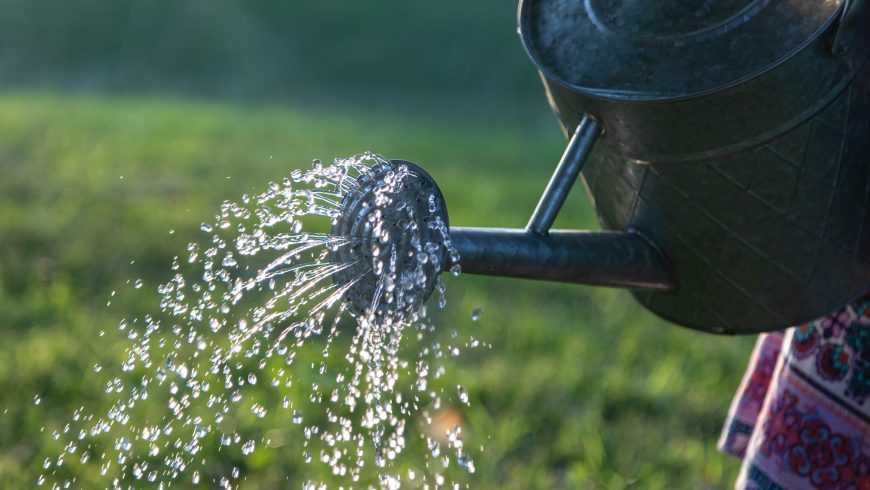Eco-Friendly Garden Watering Tips

Eco-Friendly Garden Watering Tips
Why Go Eco-Friendly with Your Garden Watering?
Imagine this: you're standing in your lush garden, admiring your vibrant plants and listening to the happy hum of nature. Now, imagine you can maintain this oasis without wasting a single drop of water. That's what eco-friendly garden watering techniques are all about. Let's dive in!
The Importance of Water Conservation
Water is a precious resource, and every drop counts. According to the EPA, nearly 9 billion gallons of water are used daily for outdoor watering in the U.S. alone. That's why it's crucial to adopt water-saving methods. Not only does it help the environment, but it also keeps your water bill in check.
Drip Irrigation: The Game Changer
Think of drip irrigation as the tortoise of the watering world – slow and steady wins the race. It delivers water directly to the roots, minimizing evaporation and runoff. Plus, it's super efficient, using up to 50% less water than traditional sprinklers.
Setting Up Drip Irrigation
Setting up a drip system might sound daunting, but it's quite simple. You'll need a timer, a filter, a pressure regulator, tubing, and emitters. Once set up, you can sit back and let the system do its magic.
Rainwater Harvesting: Nature's Gift
Why let rainwater go to waste when you can collect and reuse it? Rainwater harvesting is like giving your garden a refreshing, natural drink. Plus, it reduces stormwater runoff, which can carry pollutants into our waterways.
DIY Rainwater Harvesting
To start harvesting rainwater, you'll need a rain barrel and a way to direct water from your downspout into it. You can then use this water for your plants. It's a win-win!
Mulching: The Unsung Hero
Mulching is like giving your plants a cozy blanket. It helps retain soil moisture, suppresses weeds, and regulates soil temperature. Organic mulches, like wood chips or straw, also improve soil health as they break down.
Types of Mulch
There are two main types of mulch: organic and inorganic. Organic mulches include wood chips, straw, and leaves. Inorganic mulches include stones, rubber, and landscape fabric. Each has its pros and cons, so choose wisely!
Soaker Hoses: The Stealthy Solution
Soaker hoses are like the ninjas of the watering world – they get the job done quietly and efficiently. These porous hoses 'weep' water directly into the soil, reducing evaporation and runoff.
Using Soaker Hoses
Soaker hoses are best used in straight lines along your planting beds. They're especially great for watering densely planted areas, as they provide a deep, even soak.
Watering Wisely
Even with these eco-friendly techniques, it's important to water wisely. Water early in the morning to minimize evaporation. Adjust your watering based on weather conditions and plant needs. And remember, it's better to water deeply and less frequently.
Maintaining Your Eco-Friendly Watering System
Regular maintenance is key to keeping your watering system in tip-top shape. Check for leaks, clean filters, and replace any damaged parts promptly. A well-maintained system will save you water and money in the long run.
The Benefits of Eco-Friendly Garden Watering
Adopting eco-friendly garden watering techniques has numerous benefits. It saves water, reduces your water bill, promotes plant health, and helps the environment. Plus, it can even increase your property value!
Getting Started with Eco-Friendly Garden Watering
Ready to make the switch? Start by assessing your current watering methods. Then, gradually incorporate these eco-friendly techniques. Remember, every small change makes a big difference.
For more tips on outdoor water conservation, check out this helpful guide from the EPA.
Conclusion
Eco-friendly garden watering is more than just a trend – it's a responsibility. By adopting these techniques, you're not just saving water; you're nurturing a sustainable future. So, go on, give your garden the green treatment it deserves!
FAQs
Q: How much water can I save with drip irrigation? A: Drip irrigation can save up to 50% more water than traditional sprinklers.
Q: Is rainwater safe for my plants? A: Yes, rainwater is usually safe and beneficial for plants. However, avoid using water from the first rain after a dry spell, as it may contain concentrated pollutants.
Q: How often should I water my garden? A: It depends on your climate, soil, and plant types. Generally, it's better to water deeply and less frequently.
Q: Can I use mulch all year round? A: Yes, mulching is beneficial year-round. It helps retain moisture in summer and insulates roots in winter.
Q: Are soaker hoses better than sprinklers? A: Soaker hoses are more water-efficient than sprinklers as they deliver water directly to the soil, minimizing evaporation and runoff.
0 Response to " Eco-Friendly Garden Watering Tips"
Post a Comment